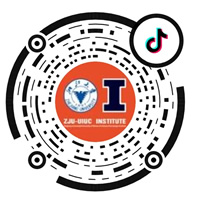Key research focus
Energy enables civilizations and drives progress in our modern world. Our insatiable need and over-reliance on inexpensive fossil fuels have culminated in an affordable energy security crisis, pollutive environment, and a warming planet that threatens the survival of humanity.
Here in ZJUI, our Vision is to create a sustainable energy future through a series of energy breakthroughs. Our Mission is to evolve the way energy is created, converted, stored, distributed, and used. To do this, we are focusing on four key areas:

CONVERSION: Enhancing clean energy generation/conversion efficiency and cost-effectiveness through the discovery of new generation architectures, new materials, and overall system integration. Focus on optimizing novel clean energy sources, recovery of energy from high temperature heat sources using gas turbines, and green materials for power generations.
STORAGE: Using all the state-of-the-art batteries available today, we can only store 10 minutes of our annual demand for electricity. To modulate the daily fluctuations in generation-demand of electricity from renewable energy sources, we will require several orders of magnitude breakthrough in high-density energy storage technology.
DISTRIBUTION: Collaborating with other research centers in ZJUI, we will develop a future-ready, intelligent, and secured power distribution network for clean energy. We will innovate on ways to directly tap heat for powering devices, create novel methods for long-distance power transmission, and secure power grid from high energy EM burst.
USAGE: We will tackle energy optimization in Industrial, Building (In collaboration with the Sustainability center in ZJUI), and Transportation that have significant potential for energy savings. Cooling of buildings consumes 50% of the generated electricity using air conditioning units with outdated high global warming potential (GWP) refrigerants that, at best, operate at 14% of the maximum theoretical efficiency. Server farms can save energy using energy efficient processors and efficient heat dissipation microstructures. Electric vehicles are limited by energy consumption due to cabin comfort and battery thermal management. Clean energy can be harnessed for powering industrial processes like desalination, metal forming, and waste treatment to reduce carbon footprint and enable carbon capture. Novel coatings that can improve the performance and energy efficiency of devices.
Finally, monitoring the global environment is the key to understanding our impact. Through researching and deploying optical, hyperspectral, and microwave remote sensing approaches, we can measure our actions reliably and scientifically on a global scale.
4) Typical research projects
1. Investigation into mechanism and effect of molecular rotations on phonons and heat transfer as well as their application in phononic devices, National Natural Science Foundation of China, Main Project (2019 - 2022)
2. Investigation of the mechanism in controlling molecular dynamic motions for improving solar and thermoelectric applications, Natural Science Foundation of Zhejiang Province, Key Project (2019 – 2022)
3. Machine learning for turbulence modelling, Natural Science Foundation of Zhejiang Province, Youth Project (2018 – 2021)








